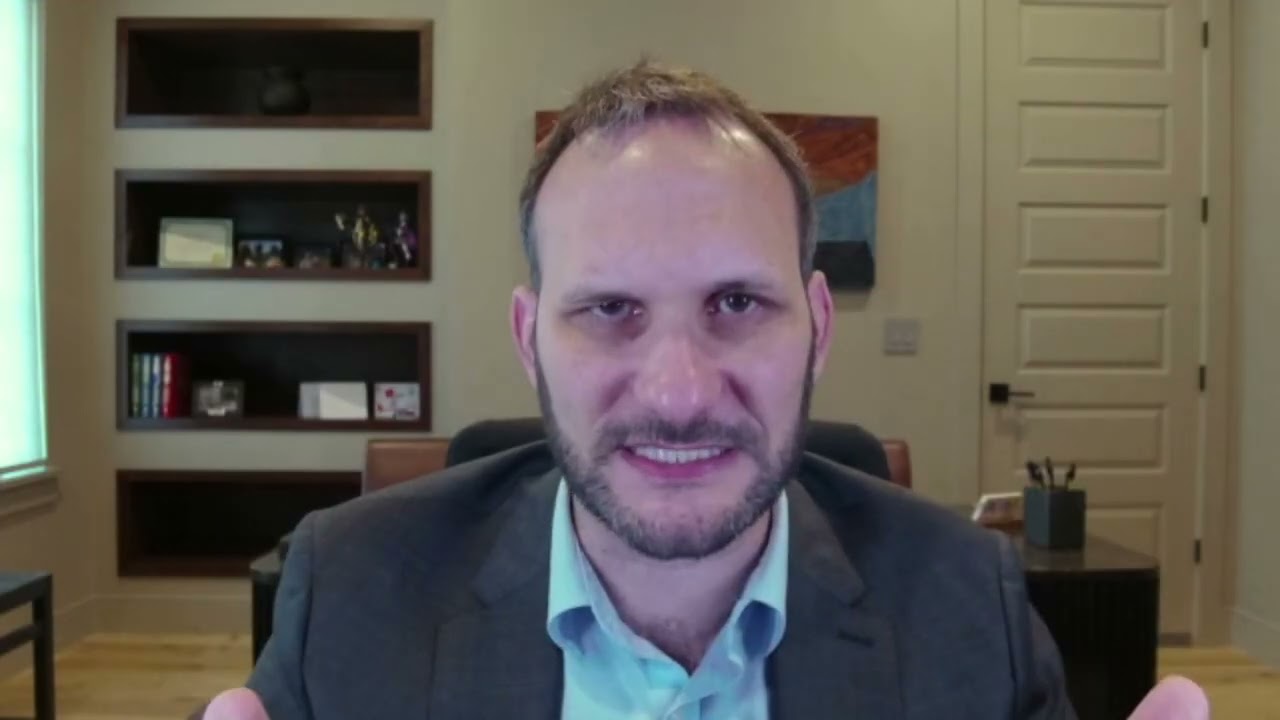Pros and Cons of Cook Islands Trusts
What Is a Cook Islands Trust?
A Cook Islands trust is an offshore asset protection trust designed to shield your assets from U.S. creditors. By placing assets in a Cook Islands trust, they are moved outside U.S. jurisdiction, making them difficult for creditors to access. A Cook Islands trust can protect a wide range of assets, including bank accounts, investments, business interests, and real estate.
The Cook Islands trust is considered one of the most powerful tools for asset protection. It offers benefits such as moving assets beyond U.S. reach, preventing seizure by creditors, safeguarding assets during a divorce, and providing leverage in settlement negotiations.
How a Cook Islands Trust Works
The Cook Islands have the strongest asset protection trust laws in the world. Creditors must prove fraudulent transfer beyond a high legal standard and file claims within a short statute of limitations.
A Cook Islands trust must have a trustee based in the Cook Islands. These trustees are licensed and regulated by the Cook Islands government under strict legal standards. The trustee is responsible for administering the trust and managing its assets, but they have no personal claim to the trust property.
A key feature of a Cook Islands asset protection trust is the involvement of independent third parties, including trustees, trust advisers, and trust protectors. While the trustee manages the assets, a trust protector can hold the authority to replace the trustee, adjust beneficial interests, or oversee investment decisions. Advisors, who may be either foreign or U.S. persons, can also be appointed to guide the trust’s investment strategy.
A Cook Islands trust protects a U.S. debtor’s assets from U.S. civil judgments by placing both the assets and the trustee beyond the jurisdiction of U.S. courts. Since the trustee is based offshore, U.S. judges cannot order the trustee to act on or access the trust’s assets. As a result, creditors cannot use legal methods to seize or interfere with the assets held in a Cook Islands trust.
To levy assets within a Cook Islands trust, a U.S. judgment creditor would need to re-litigate the original U.S. case in the Cook Islands courts and secure a new judgment there. This process is challenging, costly, and rarely pursued by creditors.
2025 Update
As of 2025, the Cook Islands remains the premier jurisdiction to form an offshore trust for U.S. residents. Unlike other countries such as Belize and the Cayman Islands, the Cook Islands have the longest history of protection and breadth of case law in favor of trust protection. There has not been any new legislation in the Cook Islands that would diminish its offshore trust protection.
We help protect what you’ve earned.
Alper Law has helped clients with asset protection planning for for over 30 years. We develop creative, customized strategies to protect our clients from judgments and creditors.
Attorneys Jon Alper and Gideon Alper are nationally recognized as leading experts in Cook Islands trust formation.

Cook Islands Trust Advantages
1. Short statute of limitations.
Transfers into a Cook Islands trust made more than two years after a creditor’s cause of action has accrued are fully protected.
2. Creditor must file within two years.
A creditor must file a lawsuit within one year from the time the cause of action accrues if the assets are transferred into the trust within two years from the date the cause of action accrues.
3. Fraudulent transfer claims cannot be brought in the U.S.
Fraudulent transfer claims cannot be brought in the U.S. The creditor must file the action into the Cook Islands, which is very expensive and burdensome for a U.S. creditor.
4. It is difficult for the creditor to break into the trust.
Even if a creditor can bring a fraudulent transfer claim, it is difficult to succeed. They must prove beyond a reasonable doubt that the transfer was made with the intent to defraud that particular creditor and that the transfer left the debtor insolvent.
The Cook Islands is considered the best place to set up an offshore trust. As one of the original countries with favorable offshore trust laws, the Cook Islands have a long history of court decisions upholding the protection afforded by its trusts.

How to Set Up a Cook Islands Trust
To set up a Cook Islands trust, you must (1) choose a trust company licensed in the Cook Islands, (2) complete a due diligence background check, (3) sign the trust agreement, and (4) fund the trust. You can open financial accounts in the name of the trust once the trust is established.
Choosing the trustee is the most important step. The Cook Islands have laws that ensure that trust companies are licensed and insured by reputable insurance companies.
How Much Does a Cook Islands Trust Cost?
A Cook Islands trust costs about $20,000, which includes a legal fee of $15,000 and a trustee fee of $3,700. The cost of the trust is higher when adding complex features to the trust. Annual maintenance fees range from $3,000 to $4,000.
The most important factors that influence the cost of setting up a Cook Islands trust are:
- Trust Setup Fees. The initial costs charged by the trustee company to establish the trust structure.
- Trustee Annual Fees. Ongoing fees paid to the trustee company to serve as trustee.
- Legal and Fees. The initial cost for the U.S. attorney to help set up the trust and draft the trust document.
- Asset Transfers. Expenses related to transferring assets into the trust, including LLCs, financial accounts, and real estate.
- Compliance and Reporting: Fees for meeting regulatory and reporting requirements in the U.S.
History of Cook Islands Trusts
The Cook Islands were the first jurisdiction that enacted favorable trust laws enabling U.S. residents to protect assets. When the Cook Islands enacted the International Trusts Amendment Act of 1989, it became the premier offshore trust jurisdiction.
Since then, other jurisdictions, such as Nevis, Belize, and the Bahamas, have enacted similar statutes.
The law affords the utmost asset protection while maintaining flexibility and privacy for U.S. trust-makers. Cook Islands trust companies are reputable, experienced, and thoroughly competent.
Structure of a Cook Islands Trust
The basic structure of a Cook Islands trust involves three parties:
- The Settlor. The settlor of an offshore trust establishes the trust by transferring assets to it.
- The Trustee. The trustee of a Cook Islands trust is is a person or corporation located in the Cook Islands that holds and manages the trust assets according to the terms of the trust deed. They have a legal duty to act in the best interests of the beneficiaries.
- The Beneficiaries. The beneficiary of a Cook Islands trust is the individual or entities that benefit from the trust, as determined by the settlor. Most often, the settlor is the primary or only beneficiary.
Should the settlor find themselves under legal duress from a domestic creditor, the trustee of the Cook Islands trust would withhold distributions until the trustee is satisfied that any distribution made would not benefit the creditor.
How Are Cook Islands Trusts Taxed?
The Cook Islands themselves do not impose a tax on offshore trusts. No income tax, capital gains tax, or estate duty is applicable to an offshore trust, provided that neither the settlor nor the beneficiaries are residents of the Cook Islands.
In the U.S., a Cook Islands trust is tax-neutral. It is taxed as a grantor trust and should flow through to the grantor’s personal U.S. tax return.

Cook Islands Trust Bank Accounts
Typically, you will set up an offshore bank account immediately after forming a Cook Islands trust. This bank account is the primary mechanism through which the trust’s assets are managed. Once the trust is established, the assets transferred into it, including the money in the associated bank account, are legally owned and managed by the trustee of the Cook Islands trust.
The bank account is often opened in the same jurisdiction as the trust, but it is also possible to establish a bank account in another jurisdiction. The choice depends on your specific needs.
Setting up a bank account for an offshore trust is not as straightforward as opening a personal bank account. Banks are subject to stringent international regulations regarding money laundering and financial crimes. They must perform rigorous due diligence before accepting business from offshore entities, including Cook Islands trusts.
No matter where they are located, international banks will require detailed information about the trust, source of funds, and the settlor and beneficiaries.
Cook Islands Trusts vs. Domestic Asset Protection Trusts
A domestic asset protection trust (DAPT) is created under the laws of certain U.S. states to shield assets from creditors. While these trusts can offer some protection, they remain subject to U.S. court orders. That means a judgment creditor can potentially convince a local judge to disregard the trust and allow collection. Courts have been inconsistent in upholding DAPTs, especially when the trust creator resides in a state that doesn’t authorize them.
In contrast, a Cook Islands trust is governed entirely by the laws of a foreign country. U.S. court orders have no effect in the Cook Islands, and any creditor would need to start a new lawsuit in a legal system designed to favor asset protection. For clients with significant risk, the offshore trust is the more secure option. A Cook Islands trust provides stronger barriers, faster expiration of claims, and a jurisdiction that is set up to thwart creditor actions.
Do Cook Islands Trusts Have IRS Reporting Requirements?
Yes. While Cook Islands trusts are legal for U.S. citizens, they come with strict IRS reporting obligations. The IRS requires U.S. taxpayers to file Form 3520 and Form 3520-A each year if they create or are a beneficiary of a foreign trust. These forms disclose the trust’s existence, structure, income, and distributions.
Failure to comply can result in steep penalties. Offshore trusts also require careful coordination with income tax reporting and may require disclosures of foreign bank accounts through FBAR or FATCA regulations.
Can a Cook Islands Trust Be Broken?
Very few creditors have ever succeeded in collecting from a Cook Islands trust. The trust’s greatest strength is that the Cook Islands legal system does not recognize U.S. court judgments. That forces any creditor to start a new lawsuit in a foreign country with strict asset protection laws and short statutes of limitations.
To succeed, the creditor must prove the trust was funded with intent to defraud a specific creditor and that the claim falls within a narrow legal window. Even then, the trust law requires proof “beyond a reasonable doubt”—a much higher standard than typical civil lawsuits. In practice, the cost, time, and legal difficulty involved make it nearly impossible for creditors to break through a properly structured Cook Islands trust.
Fraudulent Transfers
The Cook Islands has a debtor-friendly fraudulent transfer law. They makes it very difficult for a creditor to successfully prosecute a fraudulent transfer claim.
Cook Islands law puts the burden of proof on the creditor to demonstrate beyond a reasonable doubt (the highest standard of proof) that the settlor transferred assets into the trust with the explicit intent to defraud that specific creditor.
Moreover, the claim must be brought within a specified time frame, typically within two years of the alleged fraudulent transfer. This is a far more protective stance than many other jurisdictions, which may use a lower standard of proof and allow claims to be brought for a longer period after the transfer.
FAQs About Cook Islands Trusts
What is a Cook Islands trust?
A Cook Islands trust is a specialized asset protection trust established under the Cook Islands’ favorable legal framework. It protects assets from creditors, lawsuits, and foreign judgments. These trusts offer privacy, a short statute of limitations for claims, and stringent requirements for proving fraudulent transfers.
Are Cook Islands trusts legal for U.S. citizens?
Cook Islands trusts are legal for U.S. citizens and commonly used for asset protection and estate planning. U.S. citizens must comply with domestic tax laws, including reporting requirements to the IRS.
How effective is a Cook Islands trust in protecting assets from lawsuits?
Cook Islands trusts are considered one of the most effective asset protection tools for U.S. residents, as they remove assets from U.S. jurisdiction and the control of the trustmaker.
How long does it take to establish a Cook Islands trust?
It generally takes 2-4 weeks to establish a Cook Islands trust.
Sign up for the latest information.
Get regular updates from our blog, where we discuss asset protection techniques and answer common questions.










